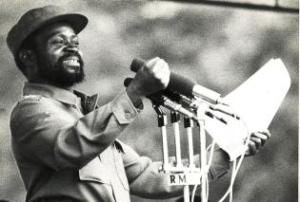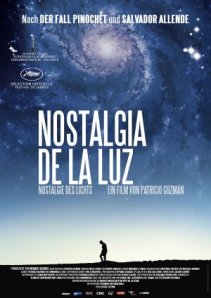Noe’s Letter from Maputo
Some of you may have heard of Maputo, the capital of Mozambique but I wouldn’t be surprised if you hadn’t. It is a large country in the south of Africa, with a very long coast on the Indian Ocean and sharing borders with South Africa, Zimbabwe, Zambia, Malawi and Tanzania. Not only do they share borders but also a history of wars and colonialism. Except that Mozambique was the only territory in that part of Africa colonized by Portugal, which meant independence only came once Portugal got rid of its own fascist government in 1975.

Then came the golden era of Mozambique's left wing liberator, Samora Machel. Again, many people wouldn’t even know his name, but he was a bigger version of Mandela, with as much of a passion for his people as he had for life. Less than 10 years later – at a time when Aparteid in South Africa was at its most threatening, and in retaliation of Mozambique’s offering political refuge to South African militants – his presidential plane crashed ‘by accident’, leaving Mozambique a helpless widow.
This is a long introduction to talk about Dockanema, Mozambique’s annual documentary festival, but Mozambique has always had a special place in the history of cinema.
After independence, Machel realized that cinema would be crucial in communicating ideas to the people, so the Institute of Cinema was created and every week films were made and distributed around the huge bush territory with ambulant cinemas. That caught the imagination of European filmmakers who took into spending time in Mozabique, such as Godard, Jean Rouche etc…To this day, France is one the main provider of finance to filmmaking here.
 This year I’m honoured to be a guest of the 6th edition of Dockanema. We are talking about a low budget, no frill festival. Yet Pedro Pimenta, the director and his wonderful team managed to squat four wonderful spaces with screening facilities and cafes for people to meet and have a good selection of international films at their disposal. Not the latest, but definitely good food for thought….and this is what festivals are about: feelings and reflection, and what better opening film than 'Nostalgia de la Luz' by Guzman, in which he mixes astronomy and historical memory. The visiting of memory is crucial at a time when there are so many political and economic insecurities, not as a nostalgic journey but as a tool to create a forward vision.
This year I’m honoured to be a guest of the 6th edition of Dockanema. We are talking about a low budget, no frill festival. Yet Pedro Pimenta, the director and his wonderful team managed to squat four wonderful spaces with screening facilities and cafes for people to meet and have a good selection of international films at their disposal. Not the latest, but definitely good food for thought….and this is what festivals are about: feelings and reflection, and what better opening film than 'Nostalgia de la Luz' by Guzman, in which he mixes astronomy and historical memory. The visiting of memory is crucial at a time when there are so many political and economic insecurities, not as a nostalgic journey but as a tool to create a forward vision.
The success of Dockanema is allowing other mini festivals and distribution networks to slowly develop in other parts of the country.
Do you like this page?
